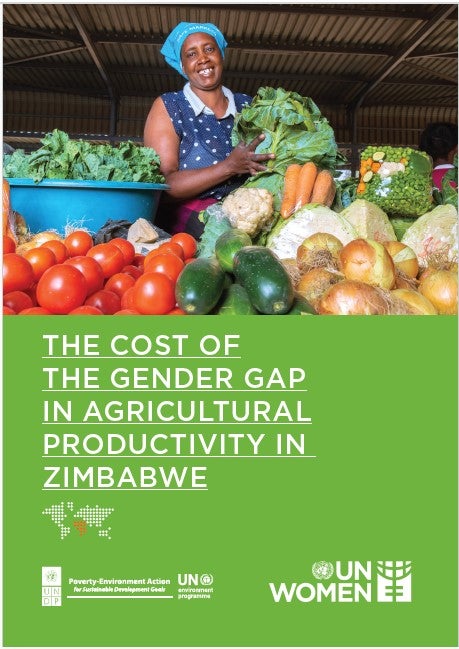
The cost of the gender gap in agricultural productivity in Zimbabwe

UN Women continues to lay emphasis on the importance of agriculture, which employs a large proportion of women in the Sub-Saharan Africa and plays a vital role in addressing food security and family nutrition. This is particularly the case in Eastern and Southern Africa, where agriculture makes up a large share of local and regional economies, representing a critical source of income, food security and nutrition. Despite this significance reliance on agriculture, well-documented gender-based inequalities in access to and control of productive and financial resources inhibit agricultural productivity and hurt food security. In recognition of the need for more quantitative evidence of the economic gains from addressing the gender gap, UN Women, jointly with United Nations Development Programme–United Nations Environment Programme Poverty-Environment Initiative collaborated on this study to measure the size of the gender gap in monetary terms. The report provides a unique quantification of the costs of the gap in terms of lost growth opportunities and an estimate of what societies, economies, and communities would gain if the gender gap in agriculture is addressed. The findings of this report are striking and send a strong signal to policy makers and development partners in Africa that closing the gender gap is smart economics.